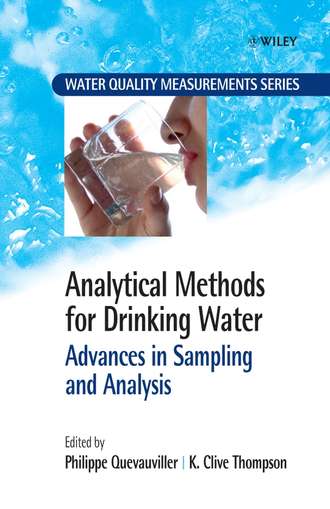Analytical Methods for Drinking Water
4.05 из 5, отдано 20 голосов

Clive Thompson
Drinking water policies and research are intimately linked. It is thanks to the scientific progress made over the last 25 years in identifying and controlling toxic products in drinking water that regulations have developed in such a way that the protection of public health from waterborne diseases has drastically improved. The integration of research outputs into the policy-making progress requires close cooperation among the scientific and policy communities, which is not always straightforward. Exchanges among scientific and policy-making communities are certainly representing key elements of progress for a better environmental protection. In this respect, analytical developments linked to drinking water are at the core of the science-policy debate. This book «Analytical Methods for Drinking Water: Advances in Sampling and Analysis» reflects this awareness in joining recent analytical developments with policy considerations. A first chapter gives an overview of EU and US drinking water policies, as well as on standardization. Analytical developments are described in depth in the second chapter, focusing on bromate in drinking water. The third chapter deals with the development of a sampling protocol for lead in drinking water, thus mixing analytical development with standardization needs. Finally, the fourth chapter focuses on standardization aspects (pre-normative research) related to materials in contact with drinking water. This book, written by experts in the field of drinking water policy and analysis, illustrates recent scientific advances in this area, which have contributed to policy development and will be of direct use to policy-makers, water scientists, researchers and analytical laboratories.Категория: зарубежная образовательная литература
ISBN: 9780470094921
Правообладатель: John Wiley & Sons Limited
Легальная стоимость: 28859.59 руб.
Ограничение по возрасту: 0+




Комментарии ():